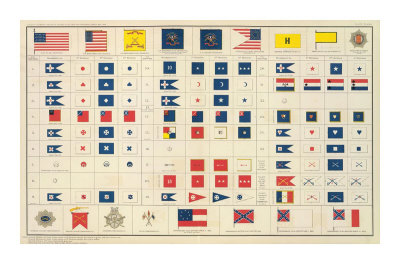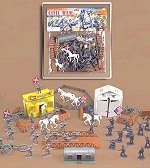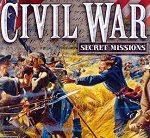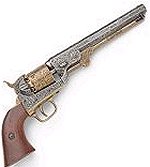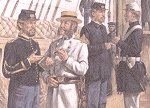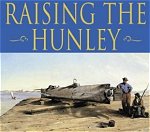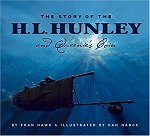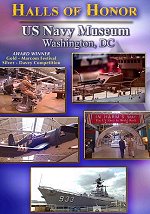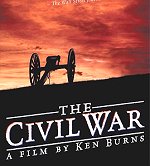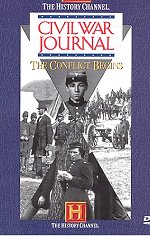USS Augusta (1861-1868)
USS Augusta , a 1310-ton side-wheel steam cruiser, was built at New York in 1852 as the civilian steamer Augusta . She operated on Atlantic and Gulf coast routes until the outbreak of the Civil War. The Navy purchased her at the beginning of August 1861, converted her to a warship and placed her in commission in late September. Augusta 's first combat operation was the November 1861 expedition to capture Port Royal, South Carolina. During the shelling of Forts Walker and Beauregard that opened the assault, she helped drive off the local Confederate Navy squadron and later joined in the bombardment. After the forts' surrender, Augusta reestablished the blockade of Savannah, Georgia. Sent to duty off Charleston, S.C., in December, she captured the blockade runners Cheshire on the 6th and Island Belle at year's end.
Augusta remained on the Charleston blockade during the first eight months of 1862, with a few weeks out in June and July to cover Wassau Sound, Georgia. After an overhaul at Philadelphia, Pennsylvania, she escorted a convoy of Army transports to the Gulf of Mexico and helped to protect shipping between Panama and the U.S. from the threat posed by the Confederate raider Alabama . She returned to the Charleston area in January 1863 and took part in the engagement with the Confederate ironclads Chicora and Palmetto State at the end of that month. In July, Augusta went north, spent a few weeks searching for the enemy cruiser Florida and then decommissioned for extensive repairs at the New York Navy Yard.
Recommissioned in May 1864, Augusta escorted the monitor Tecumseh to Pensacola, Florida, and operated on commerce protection service between the U.S. and Panama. However, continual engine problems finally left her so disabled that she had to be towed home. She was again decommissioned in January 1865 and was under repair for more than a year.
Augusta returned to active service in April 1866, and the next month began a lengthy trans-Atlantic deployment as escort for the monitor Miantonomoh . Between June 1866 and May 1867, the two ships visited European ports ranging from Russia to Italy. They returned to the United States by way of the Canary Islands and the West Indies, arriving at Philadelphia in July. Decommissioned soon thereafter, USS Augusta was sold in December 1868 and subsequently became the merchant steamer Magnolia .
In European waters, circa 1866-1867
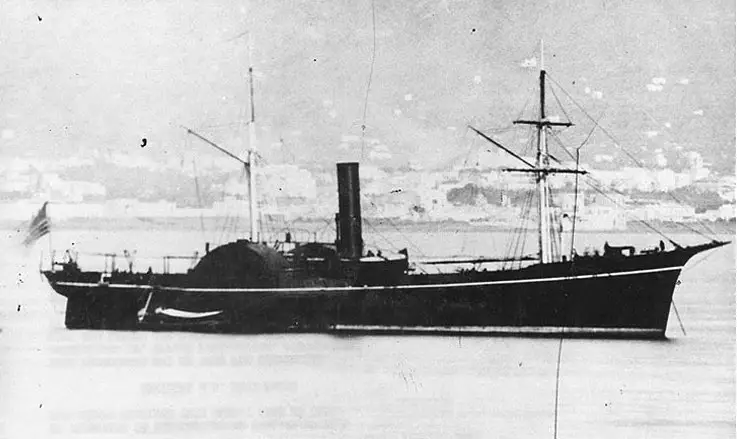
Built at New York City in 1852, she was taken over by the Navy in 1861 and served as USS Augusta until sold in December 1868
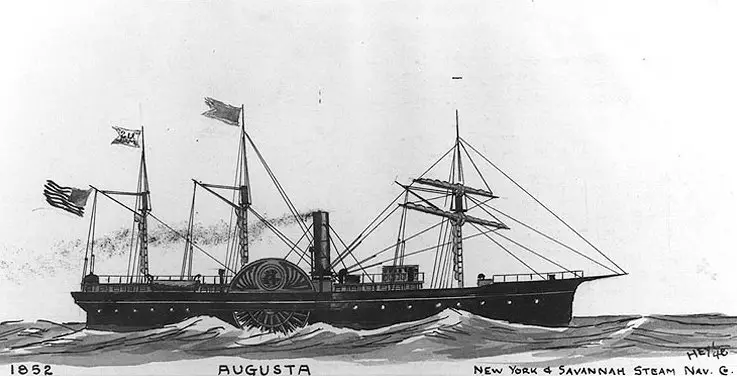
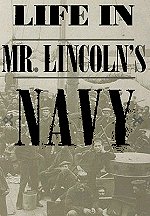
Life in Mr. Lincoln's Navy
A tantalizing glimpse into the hardships endured by the naval leadership to build and recruit a fighting force. The seaman endured periods of boredom, punctuated by happy social times and terrifying bouts of battle horror

Confederate Phoenix
The CSS Virginia
The CSS Virginia of the Confederate States Navy destroyed two of the most formidable warships in the U.S. Navy. Suddenly, with this event, every wooden warship in every navy in the world became totally obsolete
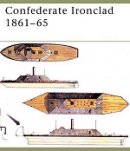
Confederate Ironclad 1861-65
Every aspect of Confederate ironclads is covered: design, construction, armor, armament, life on board, strategy, tactics, and actual combat actions.
